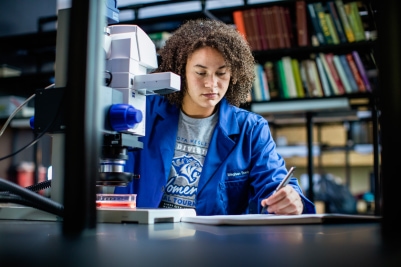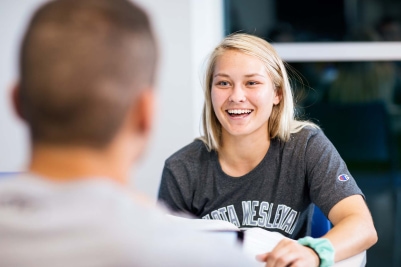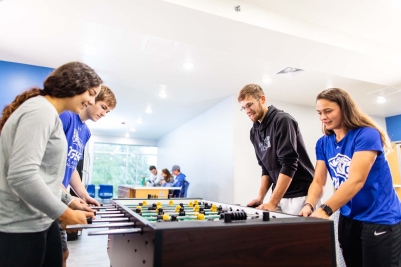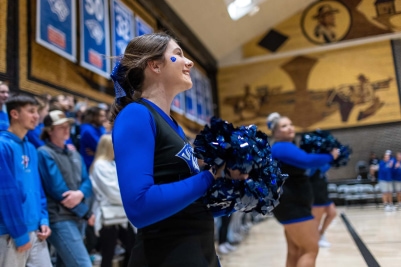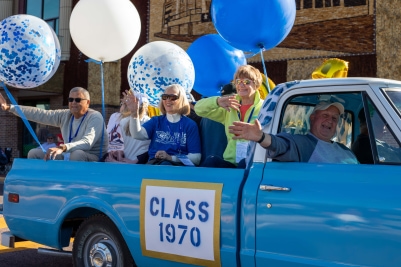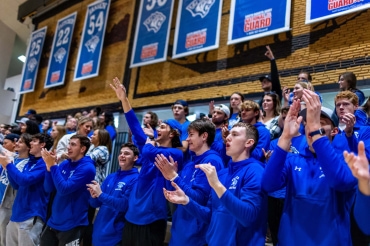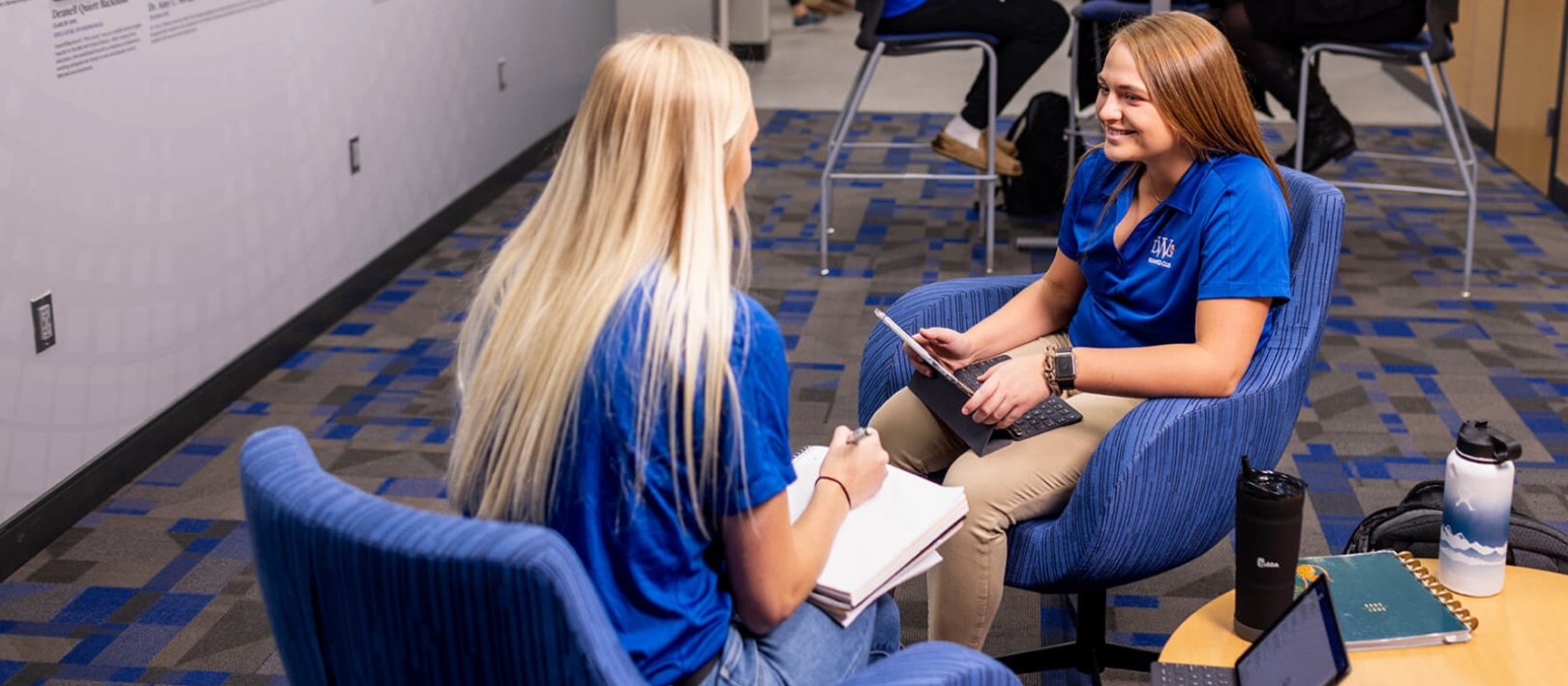Pre-Medicine and Related Health Professions
Make an impact in medicine
What jobs can you do with a
pre-medicine or pre-health
degree?
We will prepare you well for the road ahead as you strive to be a:
Medical doctor, Doctor of Osteopathic Medicine or Physician’s Assistant
Dentist
Optometrist
Pharmacist
Veterinarian
DWU + VCOM Med School Partnership
As a DWU student, if you are interested in attending The Edward Via College of Osteopathic Medicine (VCOM), you are guaranteed an interview and have an opportunity to apply for the Rocovich Scholars Early Admission Program.
The Edward Via College of Osteopathic Medicine is a private, non-profit osteopathic medical school with campuses on Blacksburg, Virginia; Spartanburg, South Carolina; Auburn, Alabama; and Monroe, Louisiana.
Learn more about VCOM.
Rocovich Scholars Early Admission Program Qualifications:
- Students can apply during their fourth semester.
- Must have a 3.5 GPA in science and an overall SAT of 1100 or ACT of 24.
- Must obtain a minimum of 45 credits from DWU.
- Must be a permanent resident of a rural area or a federally designated medically underserved area, qualify as being from a low socioeconomic background or are a member of an underserved minority.
- 40 hours of healthcare work (at time of application)
- 40 hours of community volunteer work (at time of application)
- 80 hours of healthcare work (at time of matriculation)
- 80 hours of community volunteer work (at time of matriculation)
Visit with your DWU adviser or an admissions counselor if this fits your educational goals and future path.
Pre-Medicine and Related Courses
Regardless of your chosen medical career path, DWU faculty members will help you succeed. As Dr. Mazzer says, “the best major for pre-med is the one that you love!” So, whatever you are passionate about... athletic training, biology, chemistry, biochemistry or psychology, we will help you prepare for the road ahead. Pair your courses with specialty internships, research opportunities and community health service projects, and you will be ready for your next step.
BIO 120 Principles of Biology I
Prerequisite or corequisite: BIO 120L
BIO 122 Principles of Biology II
Prerequisite: BIO 120/120L
Corequisite: BIO122L
BIO 200 Research
Prerequisites: BIO 120
Prerequisite or corequisite BIO 122 and consent of instructor.
BIO 220 Anatomy and Physiology I
BIO 300 Research
Prerequisites: BIO 122/122L and consent of instructor.
BIO 301 Biostatistics
BIO 302 Ecology
BIO 305 Biology Teaching Methods
BIO 311 Invertebrate Zoology
BIO 315 Genetics
Prerequisites: BIO 122/122L
Prerequisite or corequisite BIO 315
BIO 316 Evolutionary Biology
BIO 318 Botany
BIO 319 Animal Development
BIO 323 Mammalogy
BIO 324 Ornithology
BIO 325 Principles of Wildlife Management
BIO 330 Anatomy and Physiology II
BIO 333 Microbiology
BIO 344 Immunology
Prerequisites: BIO 122/122L, and CHM 174/174L or CHM 231/231L or consent of instructor
Prerequisite or corequisite: BIO 344L
BIO 346 Intro to Molecular and Cell Biology
BIO 400 Research Problems in Biology
Prerequisites: BIO 122/122L, an approved proposal and consent of instructor
BIO 403 Research in Biochemistry
Prerequisite: Consent of instructor.
CHM 231 Organic Chemistry I
Prerequisite: CHM 164/166
Corequisite: CHM 231L
CHM 310 Inorganic Chemistry
Prerequisite: CHM 164
CHM 332 Organic Chemistry II
Prerequisite: CHM 231/231L
Corequisite: CHM 332L
CHM 341 Biochemistry I
Prerequisite: CHM 174/174L or CHM 231/231L
Corequisite: CHM 341L
CHM 342 Biochemistry II
Prerequisite: CHM 341/341L
Corequisite: CHM 342L
CHM 360 Physical Chemistry
Prerequisites: CHM 164 and MTH 210
MTH 200 Statistical Methods I
Prerequisite: MTH 125 or consent of instructor.
MTH 210 Calculus I
Prerequisite: MTH 135 or math placement.
PHS 260 University Physics I
Prerequisite: MTH 210
Corequisite: PHS 260L
PHS 270 University Physics II
Prerequisite or corequisite: PHS 260/206L
Corequisite: PHS270L
PSY 131 General Psychology
PSY 202 History of Psychology
PSY 237 Developmental Psychology
PSY 333 Cognitive Psychology
PSY 381 Psychology Of Personality
PSY 435 Experimental Psychology
PSY 443 Abnormal Psychology
Prerequisite: Six credit hours of psychology courses.
PSY 482 Senior Thesis
SOC 332 Social Psychology
Get to Know Your Professors
As a pre-med or pre-health major, you’ll develop a plan early on with DWU professors and advisers to understand the requirements and application process of the professional school you wish to pursue. You’ll also work closely with faculty as you do specialty research and match with local health professionals to gain experience.
Bethany Melroe Lehrman, Ph.D.
Paula Mazzer, Ph.D.
Strengthen Your Pre-Medicine
or Pre-Health Degree
As a pre-med or pre-health major, you’ll experience a variety of opportunities. DWU will help connect you to local hospitals and clinics, to gain practical experience in health professions. You also have a well-rounded sampling of cocurricular activities or work experiences, both related and unrelated to medicine, that will help you grow as a student and professional.
Resources
We’ve prepared information that will be helpful for you as a college freshman if you are aiming at med or another post-health school. Start your journey here.
Related Majors & Minors
Allied Health
Be ready for the positions that comprise over half the jobs in healthcare today, such as medical technologist, occupational therapist or physical therapist.
Biology
Interested in plants, animals and human life? Explore living things with a major in biology.
Biochemistry
Explore the living things around you, while you investigate the complexity of life processes in animals and plants.
Chemistry
If problem solving is your thing, you'll fit right in at DWU.
Pre-Physical Therapy
Help sick or injured people improve their mobility and manage pain.


